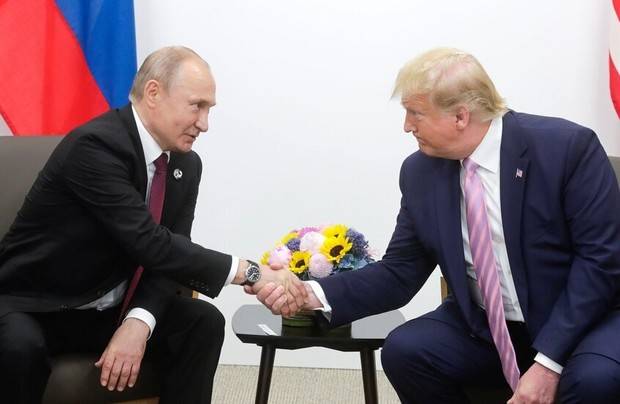2268 Views
A Deal without Kyiv? How Trump’s Secretive Alaska Summit Could Redraw Europe’s Borders
The recent peace talks between Ukraine and Russia in Alaska took place under circumstances where one of the key actors in the peace process was absent: the representative of Ukraine. U.S. President Donald Trump and his Russian counterpart Vladimir Putin met in Alaska to discuss the war in Ukraine, marking their first face-to-face meeting since 2021.
Although Trump claimed that Zelensky might have been invited to the meeting, in practice no official invitation was extended. In response, Zelensky stressed that these talks, without Ukraine’s participation, would have no impact on the peace process or the resolution of the conflict. Similarly, European leaders—including those of the UK, France, Germany, Italy, Poland, Finland, and the European Commission—issued a joint statement declaring that peace without Ukraine’s presence is impossible.
Following the meeting, although both sides described the talks as “constructive,” the summit ended without any concrete result or achievement. No agreement was reached regarding peace or ending the war between Russia and Ukraine.
The Ukrainian government has repeatedly emphasized the necessity of Kyiv’s presence in any peace process and remains deeply skeptical of any agreements made without its involvement. The exclusion of Ukrainian representatives from the Alaska talks not only weakens Kyiv’s role but also reveals a deeper truth: Ukraine has never been the main actor in this crisis but rather a tool in NATO’s hands, used by the West as a bargaining chip. The Alaska talks demonstrated that the real players are Russia and the U.S., and that the West cannot hide from this reality.
European allies and Kyiv fear that direct dialogue between Washington and Moscow—without Ukraine’s participation—could lead to an agreement that cedes parts of Ukrainian territory to Russia. The fact is that without Ukraine’s involvement, achieving a fair and realistic deal is impossible. Any territorial concessions to Russia would represent coercion and a form of neo-colonialism, devoid of geographic or security legitimacy.
Turning to Trump’s foreign policy, it is important to recall his earlier promise to “end the war in 24 hours,” which, now six months into his return to the White House, has become a matter of growing debate and criticism. Trump’s talks with Putin—without Kyiv—could serve as a test of his seriousness in pursuing peace and fulfilling his promises. Yet, Washington’s failure to deliver on its ambitious pledges has weakened America’s global position and opened the door for Russia to exploit the situation, taking advantage of regional geopolitical realities to secure a lasting agreement.
A potential bilateral deal could have far-reaching consequences for European security and NATO’s future, further deepening rifts between the U.S. and its European allies. Such an agreement could diminish America’s longstanding influence over NATO and the EU while bolstering Russia’s geopolitical position. Meanwhile, the EU, seeking to limit Moscow’s power, faces the risk of seeing NATO’s long-term strategy reshaped—demonstrating that without acknowledging Russia’s power and policies, European strategies are bound to fail.
Critics argue that any deal between Russia and the U.S. without Ukraine would effectively legitimize territorial changes brought about by force, raising fears of increased reliance on military might to resolve international disputes. From Moscow’s perspective, Russia claims the right to defend its borders and security, pursuing policies consistent with its national and regional interests. The West, however, continues to impose unilateral policies divorced from realities on the ground, guided instead by colonial-style approaches.
Should such a deal materialize, Russia’s role as a central player in safeguarding regional geopolitical security would be reinforced, forcing the U.S. and Europe to reconsider their policies while reducing pressure on Moscow. Ignoring the realities of the Russia-Ukraine conflict, critics warn, would spell the enduring failure of both EU and U.S. strategies.
In conclusion, the exclusion of Ukraine from the negotiating table not only downgrades Kyiv from a main actor to a mere spectator of events, but also risks legitimizing Russia’s territorial gains by force. Many critics fear that accepting border changes achieved through coercion could reshape Europe’s balance of power. All this is unfolding as Trump’s earlier promise to “end the war in 24 hours” looms large—now, more than six months after his return to the White House, the outcome of these talks could determine whether Trump is seen as successful or defeated in handling this crisis.
*Translated by Ashraf Hemmati from the original Persian article written by Navid Daneshvar

Comment
Post a comment for this article